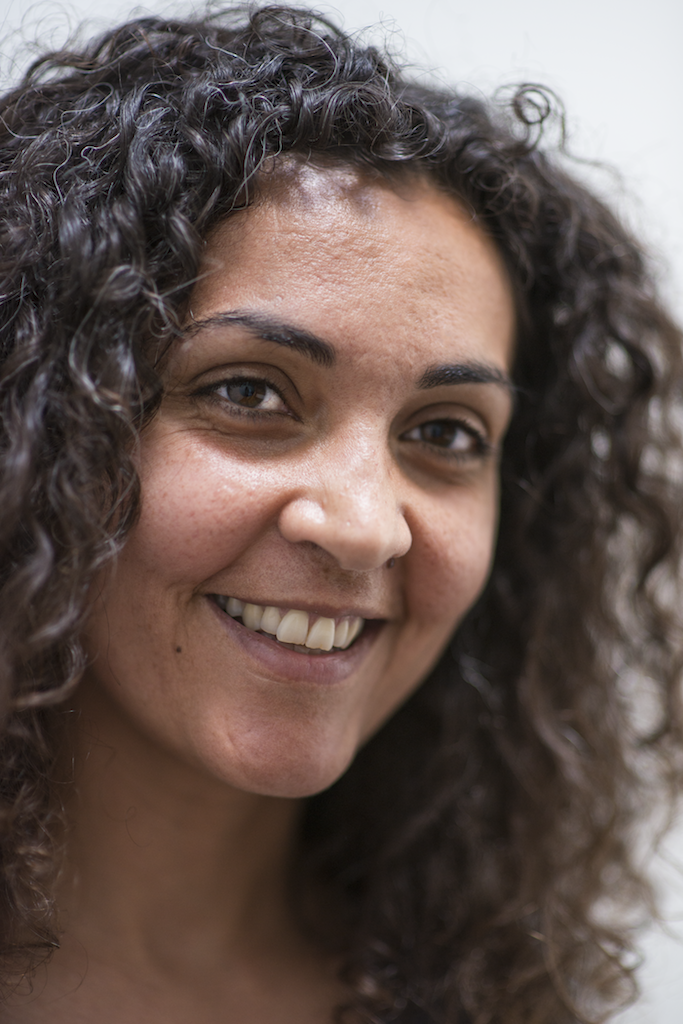Yara El-Ghadban, the voyager
Novelist, musician, anthropologist... She accumulates titles as she travels around the world before permanently residing in Quebec. A university professor, this native of Palestine puts her experiences as a migrant and her training as an anthropologist at the service of her research in South Africa, Quebec and in the Arab world…
From Dubai to Montreal, your current city of residence, via Beirut, Sanaa and London ... You have a rather impressive migration route. Explain your journey?
Migration is a journey we do not choose. Until my arrival in Quebec in 1989, I travelled because of necessity; either to find a better place to live or because my parents were refugees, in the best case because I was visiting members of my family scattered throughout the world. I come from a family of exiles with relatives in Lebanon, Syria, Jordan, the Persian Gulf, Romania, Sweden, and until recently in London and the United States. Migration offers extraordinary experiences; but also causes some pain or injury. It's a pain that I accept. When one embraces it, one can transform this pain into opportunities even if the injury does not heal completely.
Besides being a voyager, you are also an anthropologist, a writer and a university professor. What is your perception of this migrating phenomenon?
Migrants are great dreamers. You really need to have a tremendous capacity to dream and limitless imagination to decide to leave everything you know behind and venture into a foreign country while having the certainty or at least the hope that what awaits you will be better. It's inspiring. That's partly what sparked my interest for anthropology and now for writing. I became a novelist as only fiction can embody this imaginary part of the migrating experience in all its beauty and its torments. In my first novel The Shadow of the Olive, Yuryur a 10-year-old girl, speaks with a great bird that teaches her about love, shows her the devastation caused by war and transports her across borders. In my second book The Perfume of Nour which is to be published in the autumn, Leila, an accomplished journalist, is transformed by a mysterious perfume that leads to the land of gods and confronts her fears. This is what an immigrant is indeed: a bird that saw things at once horrific and magical and that follows the scent of her dreams. In Quebec and in other countries of immigration, we tend to reduce the experience of migration to economic or materialistic calculations that are sometimes at odds with the symbolic meaning that migration bears for the immigrant. If there are misunderstandings about the role of immigrants in the host society, it is often at this level.
You talk about this pain as if you still live it. What, according to you, hurts an immigrant more? The uprooting or the forced journey for those that, for example, throw themselves in the seas: Atlantic or Mediterranean?
I cannot compare my experience as a Palestinian to that of a Haitian person who fled the Duvalier dictatorship, or that of a Libyan fleeing political, economic and social instability. That being said, I would say the uprooting is both a suffering and an enjoyment. There is a desire for total freedom; the inner freedom that the person is looking for, but also anxiety, confusion and alienation when you arrive in a country where one does not even know how to take the bus. It is also a moment of euphoria, because everything is possible. The immigrant shows up with an almost unlimited energy. This energy is creative at first. We want to build, rebuild the world. It is a gift we want to offer to the country that welcomed us. If the gift is not recognised, if we still believe that the immigrant has everything to gain and nothing to teach us, that energy is wasted and could turn into anger. In the novel Quebec, the Charter, the Other in which intellectual minds from all backgrounds collaborate, many stressed the opportunities and risks presented by the time of uprooting and the encounter with the other. We speak too often, in my opinion, of the inclusion, the compassion and even of pity, when it comes to immigrants who die in the sea, but too little of the solidarity - because solidarity involves working hand in hand with a mutual recognition.
Is there, according to you, an ideal place for immigrants from the Arab world to live their dreams, their beliefs, and their culture?
The "ideal" place does not exist. Every country has its strengths, its bruises and its history. Sometimes it is a matter of fate. It's like a couple in love: you have to maintain love. I have lived in several countries and I recognise all that they have given me and all they have taken from me. London changed my vision of Europe. In Sanaa, I lived the last year of my childhood. It is a city that has deep connections with me. Although I was born in Dubai, one of the richest countries in the world, I do not feel the same attachment. Quebec gave me a third language, French, which became my language of expression, through which I tell my story, share my vision of the world and invite others into my imagination. This is how I make my contribution to this country and to humanity. Language is a precious gift because it is reciprocal.
The migration of Haitians, Africans, Arabs, for example, often change. Can you explain these changes as an anthropologist?
Indeed it is changing. I am part of this wave of migration from Lebanon, although I have not come directly from Lebanon, but Palestinians had taken refuge in Lebanon. This was at a time when Canada hosted many investors, professionals, and skilled workers. Already at home, these immigrants were part of the middle class and even upper class. Nowadays, there is the phenomenon of migration by sea and of the undocumented immigrants.
My colleague Filippo Furri, an anthropologist, observed a significant change: before, undocumented immigrants were fleeing the authorities for fear of being registered and detained; today the authorities do not even want to recognise the presence of undocumented immigrants on their soil, because if you give them a case number, you become responsible for them. It is a form of total rejection and is dehumanising. As for the host country, an ominous turn occurred due to the perception of not being safe in the presence of the other. The other is threatening, at first, and arouses suspicion. Relationships are thus perverted by fear and suspicion before they can develop. The resentment towards the other is even stronger since we associate his presence to the anti-democratic laws that countries adopt in the name of their national security, such as the C-51 law.
As an anthropologist you have led a lot of research in Quebec, South Africa and in the Arab world on issues of identity, intercultural practices in pluralistic societies and living together. This notion of living together: is it a redundant dead-end in the case of Palestine, your country, and Israel, its neighbouring country?
I do not believe in hatred nor do I in tautologies. Anthropology has taught me that we are extremely complex and ambivalent creatures. So the demonstration of any form of tautology requires great violence. In the case of Palestine and Israel, a certain theory claims that people have hated each other for hundreds of years; that the problem between the two is so deep that it will never be solved. All of this is based on beliefs. The issues are simple, really. Legal issues are clear. There is an illegal use of a land and an illegal uprooting, according to international laws and conventions.
There is no doubt about that. And then there is another point: they are two nations that resemble each other and have a shared history. Already we share the languages of Arabic and Hebrew, which stem from the same roots. When it comes to religion, we share social practices. It is therefore a question of fair and just relations. Talking about tautology between religion, land and identity is a pretext for political interests.
I believe that things do not have a choice whether to settle themselves or not. The territory is so small. We cannot ignore each other. The international law is clear. For refugees, we must recognise what happened in 1948. There was the ethnic cleansing of an entire population. Even Israeli historians recognise this fact. Several solutions are already in the works. There is only the lack of will of the international community to respect its own laws.
Interview by Claude Gilles
Photos by Christian Tremblay




